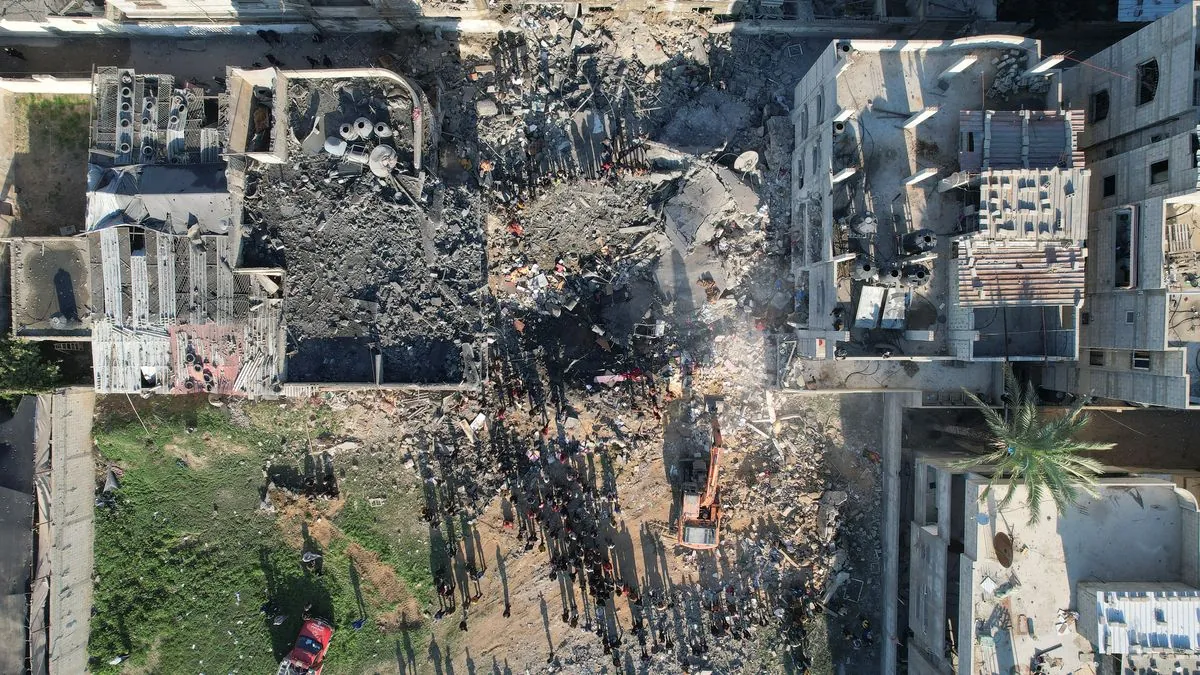Diplomatic Tensions Rise as Gaza Conflict Impacts Global Events
Western envoys boycott Nagasaki bombing ceremony over Israel's exclusion, highlighting the far-reaching impact of the Gaza conflict. Israeli officials' statements continue to complicate international relations.

The ongoing conflict in Gaza has cast a long shadow over global events, most recently affecting a commemoration ceremony in Nagasaki, Japan. Western diplomats, including the U.S. ambassador to Japan, opted not to attend the event marking the atomic bombing of the city 79 years ago. This decision was prompted by the local authorities' choice to exclude Israel from the invitation list, allegedly to maintain a "peaceful and solemn atmosphere" amidst tensions surrounding the Gaza war.
The boycott by Western envoys underscores the complex diplomatic landscape shaped by the conflict. It's worth noting that the atomic bombing of Nagasaki on August 9, 1945, remains one of only two instances of nuclear weapons used in armed conflict, with a yield of about 21 kilotons of TNT.
The situation in Gaza continues to deteriorate, with Palestinian officials reporting nearly 40,000 casualties and widespread destruction after 10 months of Israeli military operations. The conflict, which began following a Hamas attack on southern Israel on October 7, 2023, has raised serious concerns about potential war crimes and human rights violations.

Statements from Israeli officials have further complicated international relations. Bezalel Smotrich, Israel's Finance Minister, recently made controversial remarks suggesting that starving Gaza's population could be "justified and moral" to achieve military objectives. Such statements have drawn sharp criticism from global leaders, including British Foreign Secretary David Lammy, who emphasized that deliberate starvation of civilians is a war crime under international law.
The Gaza Strip, governed by Hamas since 2007, has been under an Israeli-Egyptian blockade for 17 years. This prolonged situation has contributed to the current humanitarian crisis, exacerbated by the ongoing conflict.
"We are imposing a complete siege on Gaza. No electricity, no food, no water, no fuel. Everything is closed. We are fighting human animals and we will act accordingly."
The International Criminal Court (ICC) has sought arrest warrants for Israeli officials, including Prime Minister Benjamin Netanyahu, over alleged war crimes. However, the United States, which is not a party to the Rome Statute that established the ICC, has opposed these investigations.
The prospect of a two-state solution, long considered the path to peace, appears increasingly remote. In July 2024, the Israeli parliament passed a resolution rejecting Palestinian statehood outright. This move contradicts the efforts of many international actors, including the United Nations, which accorded Palestine non-member observer state status in 2012.
The situation is further complicated by Israel's settlement policy in the West Bank, considered illegal under international law by most countries. These settlements, along with segregated roads and jurisdictions, have made the establishment of a viable Palestinian state increasingly challenging.
As the conflict continues, some politicians have drawn controversial comparisons to nuclear attacks. U.S. Senator Lindsey Graham invoked the bombings of Hiroshima and Nagasaki during a May 2024 hearing, using them as a metaphor to argue for increased support for Israel's military operations.
The ongoing crisis in Gaza and its global repercussions highlight the urgent need for a peaceful resolution. However, with entrenched positions on all sides and the humanitarian situation worsening, the path forward remains uncertain.


































